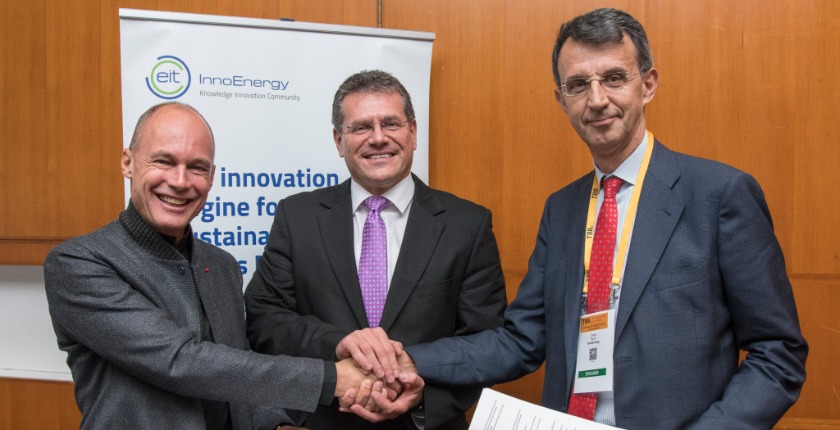News - October 25, 2017
Innoenergy and the World Alliance: together to support innovative startups


Written by Solar Impulse Foundation
Innoenergy works with their network of partners to build connections across Europe to foster innovation, entrepreneurship and education. Their business model de-risks innovation and investment, thereby allowing more organisations to participate, and resulting in a broad array of new technologies, products and solutions.
Bertrand Piccard, Chairman of the Solar Impulse Foundation, said “InnoEnergy has a rich network of partners and innovative technologies across Europe’s clean energy ecosystem, which we believe can add significant value to our efforts – and vice versa. This is a truly exciting collaboration that has the potential to accelerate our progress.”
And they have had extraordinary success; after 3 years, 91% of the startups InnoEnergy have invested in are commercially viable. These are unheard of, and serves to demonstrate the enormous untapped potential that the clean energy transition has for profitable solutions that protect the environment.
The two organizations will now join forces to identify promising solutions that could be considered for inclusion in the 1,000 solutions to protect the environment that the Solar Impulse Foundation has promised to bring to decision-makers in 2018. This will also help Innoenergy identify potential ideas to support.
“When it comes to turning an idea into a commercial reality there are many moving parts, but by harnessing the combined power of our connections, this collaboration presents a truly win-win situation,”
said Diego Pavia, CEO of Innoenergy.
“The backdrop of this signing [The Business Booster (TBB)] is particularly apt. With more than 160 clean-tech start-ups, innovations, investors and large energy industry players present, we are already creating the conditions for genuine change.”
Bertrand and Diego were joined at the signing by Maroš Šefčovič, Vice-President of the European Commission for the Energy Union, who spoke of his excitement about this relationship, and the need for regulation to also help make this energy transformation.
Pull not Push innovation
Bertrand Piccard, Chairman of the Solar Impulse Foundation, believes we can speed up this success if we find ways to pull innovation - such as through regulation that makes clean energy a more obvious choice - rather than pushing it.
Speaking at the TBB conference, he said “Imagine if we pull innovation instead of pushing it. Imagine if governments would be much more ambitious in their environmental policies - It would create a real need for innovation.
At this moment we tend to push innovation with public money, with subsidies. The result is that we get solutions, but they are not being used.
There are very few restrictions on putting CO2 in the air or wasting energy or natural resources. The solutions are there, but there is no need to use them. There is a moral need, an ecological need, but not a legal need.”
This blog contains content that first appeared on energypost.eu

Written by Solar Impulse Foundation on October 25, 2017
